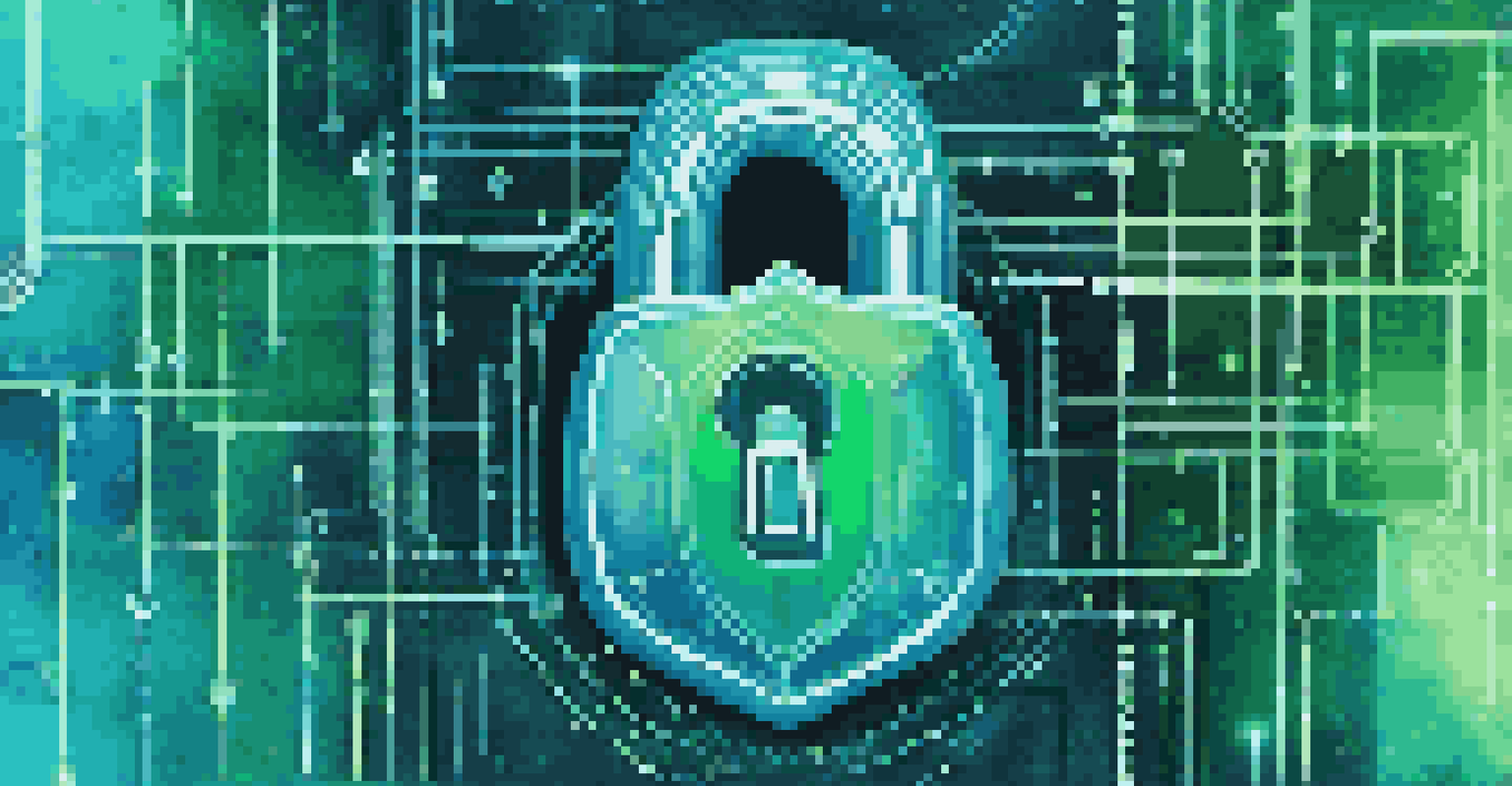SaaS Compliance: Navigating Regulations and Standards

What is SaaS Compliance and Why It Matters
SaaS compliance refers to meeting the regulatory standards that govern software as a service. These regulations ensure that companies protect user data and maintain service quality, which is crucial for customer trust and business integrity.
In today's digital world, compliance and security are not just legal requirements; they are essential to building trust with customers.
In an increasingly digital world, compliance is not just about avoiding penalties; it's about fostering a reputation for security and reliability. For instance, companies that prioritize compliance often see enhanced customer loyalty and reduced churn rates.
Additionally, understanding compliance can differentiate your SaaS product in a crowded marketplace. It signals to potential clients that you value their data and are committed to maintaining high industry standards.
Key Regulations Impacting SaaS Providers
Several regulations govern SaaS compliance, with GDPR and HIPAA being two of the most significant. GDPR, or the General Data Protection Regulation, focuses on data privacy for individuals in the European Union, while HIPAA regulates the handling of healthcare information in the U.S.

These regulations set strict guidelines on data collection, processing, and storage. For instance, under GDPR, companies must obtain explicit consent from users before collecting their data, emphasizing transparency and user rights.
Understanding SaaS Compliance
SaaS compliance ensures user data protection and service quality, which builds customer trust and enhances business integrity.
Understanding these regulations not only helps in compliance but also aids in developing better data management practices. This proactive approach can enhance your operational efficiency and build trust with your users.
Industry Standards: ISO and SOC Compliance
In addition to legal regulations, SaaS providers often adhere to industry standards like ISO 27001 and SOC 2. ISO 27001 provides a framework for managing information security, while SOC 2 focuses on data security and privacy controls.
Data protection is not just about compliance; it's about building a culture of security that permeates the organization.
Achieving ISO 27001 certification demonstrates a commitment to maintaining the highest security standards, which can significantly enhance your credibility in the eyes of potential clients. Meanwhile, SOC 2 compliance is crucial for SaaS companies as it addresses customer data protection.
These standards not only bolster your reputation but also create a culture of security within your organization. Adopting these practices can help you prevent data breaches and mitigate risks associated with non-compliance.
The Role of Data Protection in SaaS Compliance
Data protection is at the heart of SaaS compliance. It involves implementing measures to safeguard sensitive information from unauthorized access and breaches. This is particularly important as data breaches can lead to severe financial and reputational damage.
For instance, employing encryption techniques and regular security audits can enhance your data protection efforts. These practices not only help in compliance but also reassure users that their information is secure.
Key Regulations to Follow
Regulations like GDPR and HIPAA set strict standards for data handling, emphasizing the importance of transparency and user rights.
Ultimately, a robust data protection strategy is essential for maintaining compliance and fostering trust with customers. By prioritizing data security, SaaS companies can avoid costly penalties and enhance their market position.
Best Practices for Ensuring SaaS Compliance
To navigate the complexities of SaaS compliance, implementing best practices is essential. Start by conducting a thorough risk assessment to identify potential vulnerabilities in your system and processes.
Regular training for employees on compliance requirements can further strengthen your organization's culture of compliance. Ensuring that everyone understands their role in protecting customer data is crucial for building a compliant organization.
Additionally, staying informed about changes in regulations and industry standards is vital. This proactive approach will help your SaaS company adapt quickly to any compliance challenges that arise.
The Importance of Regular Compliance Audits
Conducting regular compliance audits is a key component of maintaining SaaS compliance. These audits help identify gaps in your compliance efforts, allowing you to address issues before they become significant problems.
Audits not only ensure that you are meeting regulatory requirements but also provide insights into your organization's overall security posture. This can lead to continuous improvements in your data protection practices.
Importance of Regular Audits
Conducting regular compliance audits helps identify vulnerabilities and ensures ongoing adherence to regulatory requirements.
Moreover, regular audits build transparency and accountability within your organization. They demonstrate to clients and stakeholders that you are committed to maintaining high standards of compliance and security.
Future Trends in SaaS Compliance
As technology evolves, so do the regulations governing SaaS compliance. Emerging technologies like AI and machine learning are prompting regulators to rethink compliance frameworks, making it essential for SaaS providers to stay ahead of the curve.
Additionally, the increasing focus on privacy and data protection means that compliance requirements will likely become more stringent. Companies that adapt to these changes early will have a competitive advantage in the market.

Ultimately, embracing a proactive approach to compliance will not only help you avoid penalties but also position your SaaS business as a leader in security and trustworthiness.